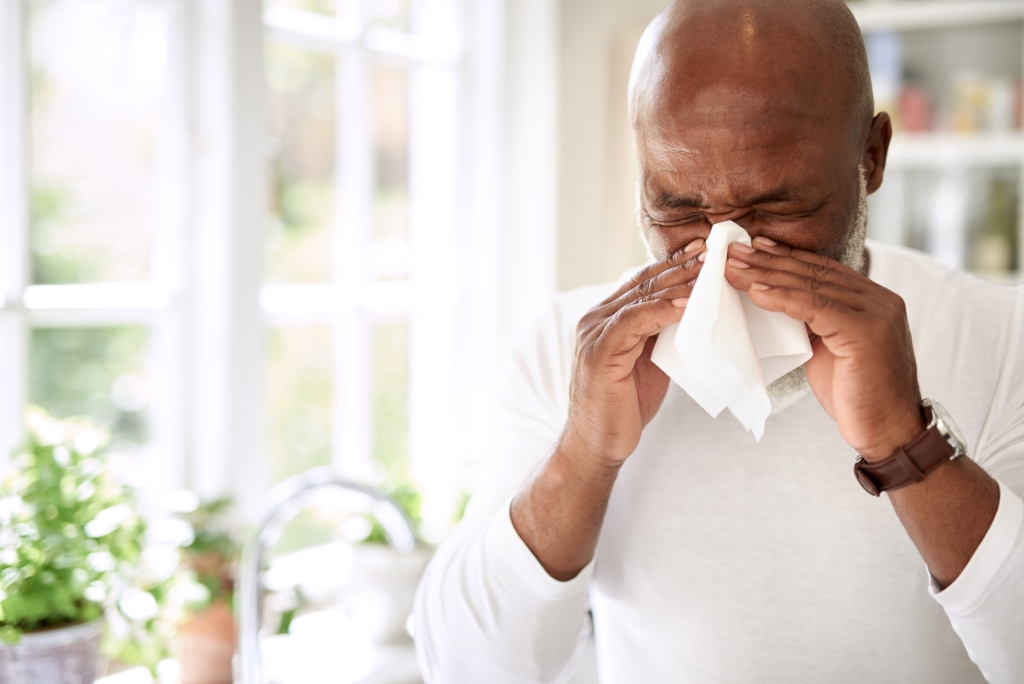It’s the season of sniffling and sneezing, but this year as Manitobans continue to deal with COVID-19, allergy symptoms can leave many wondering if they should be more concerned.

More people are spending family time outdoors while social distancing, which could lead to symptoms that look similar to COVID-19. But in many cases, these symptoms are actually triggered by a reaction to pollen or grass.
READ MORE: Coronavirus, the flu or the common cold? Here’s what to know
“There’s absolutely overlapping symptoms for sure, but there are a few things that you can think of as a sign that they are just your usual allergies as opposed to developing COVID-19 for the first time,” Dr. Anne Ellis, director of the Allergy Research Unit at the Kingston Health and Science Center, said.
While many seasonal ailments have similar symptoms to COVID-19, there are some key differences.
“First and foremost, sneezing and runny nose, that sort of system complex, is an overlap,” she said. “But nasal itching is very specific for allergic rhinitis or hay fever and hasn’t been seen so much in COVID.”
COVID-19
The novel coronavirus is a respiratory illness. For many patients, a dry cough and fever are the most predominant symptoms.
Other symptoms include fatigue, difficulty breathing, a new loss of taste or smell, aches and pains in the body and a sore throat.
Some patients experience vomiting or diarrhea, and loss of smell and taste.
“Fever muscle aches, feeling unwell, feeling extra really profoundly fatigued, that is COVID-19, that’s not something that usually goes along with regular allergies,” Ellis said. “Definitely fever and having a temperature is not part of allergies.”
According to the World Health Organization, if you experience severe chest pain, a significant shortness of breath or a loss of speech and movement, you should seek out immediate medical attention.
SEASONAL ALLERGIES
Seasonal allergies are not triggered by any sort of virus but by airborne pollen, usually released in the spring and fall. These allergies predominately affect the sinuses.
“Allergic rhinitis hits at least 14 per cent of the Canadian population,” Ellis said.
According to the Canadian Allergy, Asthma and Immunology Foundation it could actually be even higher and affect as many as 25 per cent of Canadians.
One of the key distinguishing factors is itchiness.
“So having itching of the nose, itching of the pallet, throat, the eyes leans you more to allergies,” she said.
If your only symptom is a runny nose, and you typically have seasonal allergies this time of year, it still may be best to get tested for COVID-19 as a precaution.
“I’d be very cautious on, you know, explaining away symptoms due to anything but COVID-19 for the time being,” Chief Provincial Public Health Officer Dr. Brent Roussin said Monday.
READ MORE: ‘Don’t suffer in silence’: How to treat your seasonal allergies
While there are many overlapping symptoms, Roussin said ruling out symptoms as just seasonal allergies can be a challenge.
“This is a challenge and it was a challenge last year as well,” Dr. Brent Roussin said. “And I would say that the biggest thing is we should be erring on the side of caution. We don’t want to miss a COVID-19 diagnosis that was mistaken for, you know, for allergies.”








Comments